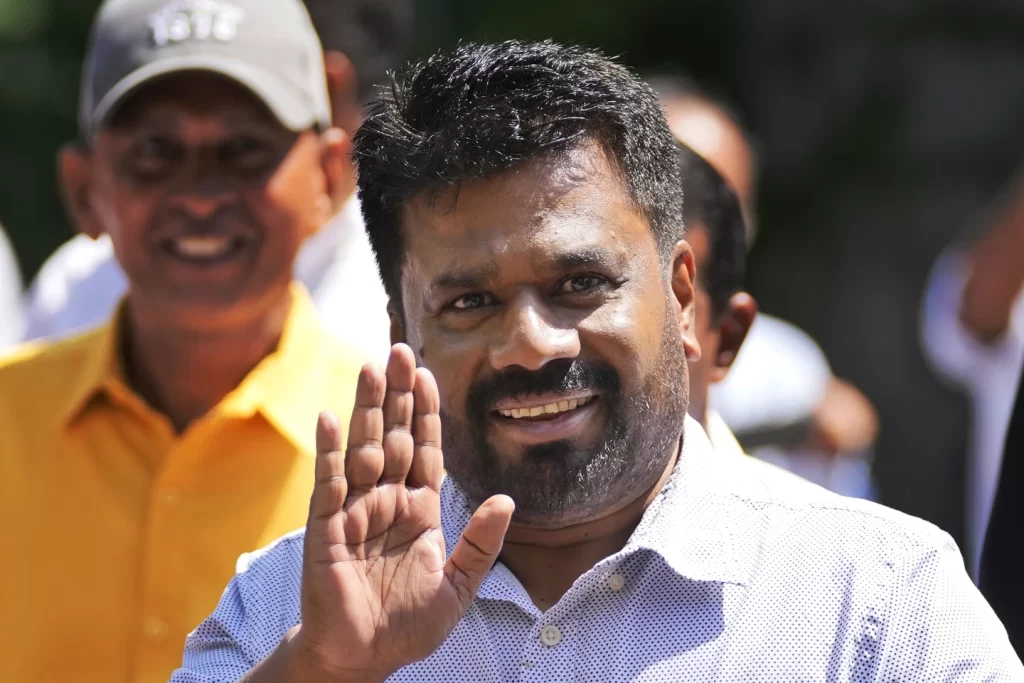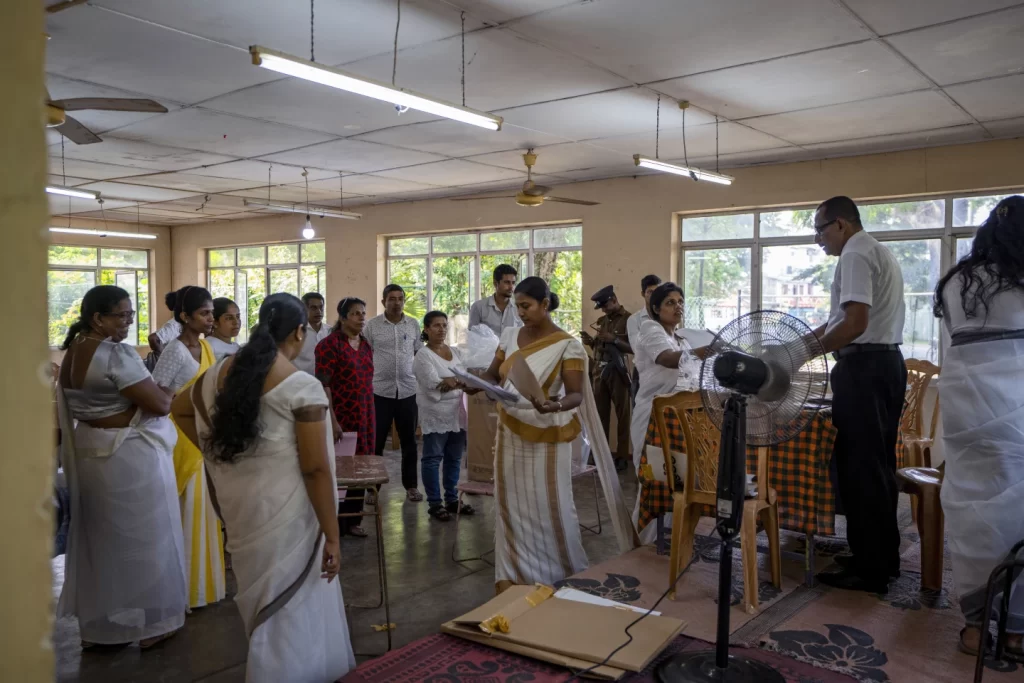Anura Kumara Dissanayake, a 55-year-old Marxist-leaning lawmaker, has claimed victory in Sri Lanka’s presidential election on Sunday, marking a significant shift in the country’s political landscape.

Dissanayake, who led throughout the ballot counting, secured 5.6 million votes, or 42.3% of the total, a substantial increase from the 3% he received in the 2019 presidential election. His closest rival, opposition leader Sajith Premadasa, finished second with 32.8% of the votes.
In a historic first for Sri Lanka, the election went to a second round of counting as no candidate secured the mandatory 50% of votes required for an outright win in the first round. Incumbent President Ranil Wickremesinghe finished third with 17% of the vote.

Dissanayake’s victory represents a departure from Sri Lanka’s traditional political dynasties. His campaign focused on anti-corruption measures and promises to reinvigorate the country’s economy, which has been struggling to recover from a severe financial crisis in 2022.
“The people of Sri Lanka have spoken clearly for change,” Dissanayake said in his victory speech. “We will work tirelessly to rebuild our economy and restore faith in our institutions.”

The election was seen as a referendum on Wickremesinghe’s leadership, particularly his implementation of austerity measures aimed at economic recovery. While these policies helped stabilize the economy, they proved unpopular among voters struggling with the cost of living.
Dissanayake now faces the challenging task of balancing economic reforms with social welfare demands. His victory has raised questions about potential shifts in Sri Lanka’s foreign policy and economic direction.
International observers have praised the election process for its transparency and peaceful conduct. The transition of power is expected to take place in the coming days, with Dissanayake set to become Sri Lanka’s 10th president.



